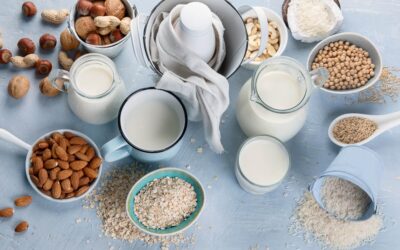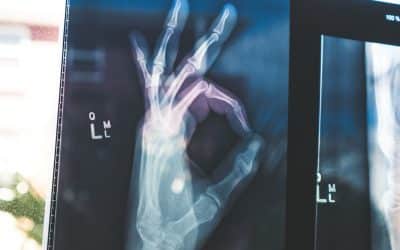Most American adults, and even children, believe they should aim for three servings of dairy a day—thanks to the US Dietary Guidelines. From a young age we are taught to believe that by devoutly consuming dairy on the daily, we will be protected from brittle bones and grow up “big and strong.” A new scientific review published in one of the world’s most prestigious medical journals, The New England Journal of Medicine, has put the benefits of milk into question. Humbly titled, “Milk and Health,” the thoroughly comprehensive review concludes point-blank that despite our government-trained devotion to milk, humans simply do not need it and are far better off without it.
The Basics
The review’s authors—Walter Willett, MD, DrPH and David Ludwig, MD, PhD—are both respected professors at Harvard University. Willett lectures on nutrition and epidemiology and Ludwig is a professor of pediatrics and nutrition. Combined, they used their expertise to review over 100 dairy-related studies to assess their position on milk as a health food. The authors offer their conclusions in several areas of health—from milk’s effects on bone mineral density to cancer, weight gain, cardiovascular disease, children’s health, and more. Within each category, the researchers found a significant lack of evidence to suggest milk lowered the risks in any of these categories; in most cases, strong evidence indicated detrimental effects of milk (and dairy) consumption.
Calcium
Willet and Ludwig first examine the justification for the US Dietary Guidelines’ recommendation of three servings of dairy a day. The calcium content of milk is the driving factor. Initially, it was believed that drinking milk each day would help Americans maintain a high bone mineral density and therefore sustain strong bones throughout life. However, this assumption was based on a series of studies that only included 155 participants—hardly enough to base recommendations for an entire country’s population. Further, these studies were only conducted for two to three weeks; whereas Willett and Ludwig ascertain that drawing conclusions from such a short term study will lead to misleading results. The authors continue to note that countries with the highest amount of milk consumption also have the highest rates of hip fracture. When it comes to children’s health, long-term studies suggest the same—there is no overall health benefit to drinking milk as a young person. In fact, the authors noted one study which found that milk intake during adolescence in men was linearly associated with a nine percent greater risk of hip fracture for every additional glass of milk consumed per day. Willet and Ludwig just dismantled the central rationale for the inclusion of dairy in the US Dietary Guidelines.
Weight Management
Moving on, the review analyzes the effects of dairy and weight control. While products such as yogurt and low-fat dairy have been marketed as weight loss foods, Willet and Ludwig highlighted a meta-analysis of 29 randomized trials that found no effect on dairy consumption and body weight. Based on a number of studies involving children, the consumption of milk was seen to have no effect on weight. Ironically, studies found that BMI actually increased later in life for child participants who regularly drank skim or low-fat milk. While there is little evidence to suggest that milk will make kids grow “big and strong,” it seems that milk certainly has the capability of accumulating excess fat.
Cancer
In the section regarding milk and cancer, Willett and Ludwig find a positive correlation between dairy and hormone-dependent cancers. Their reviews of internal comparisons studies suggested that both breast and prostate cancer were positively linked to dairy consumption. They suggest that the presence of IGF-1 (insulin-like growth factor) in cows’ milk leads to an increased risk of prostate and potentially breast cancer.
Cardiovascular Disease
Finally, the review breaks down dairy’s effects on blood pressure, lipids, and cardiovascular disease. It has been suggested that dairy can help lower blood pressure due to its high potassium content, but Willett and Ludwig found the body of research regarding this claim to be inconsistent. Further, the authors acknowledge the fact that in these specific studies, milk is often compared to unhealthy foods such as sugar-sweetened beverages. A fair comparison has yet to be studied. The authors state that they cannot accurately comment on the effects of dairy consumption and cardiovascular disease when the comparison foods tend to be red meat or a diet based on refined carbohydrates. In essence, past research has shown that dairy is not as bad as some foods (such as red meat), but that does not prove it is beneficial or even harmless when it comes to cardiovascular health.
Conclusion
Based on the available evidence, Willett and Ludwig conclude that dairy does not serve a beneficial purpose in human diets. While it does offer some nutrition by way of calcium and fortified vitamin D, the authors explain that the same nutrition can be found in other foods “without the potential negative consequences of dairy foods.” In fact, for those in low-income situations, vitamin D supplements are far more cost-effective than fortified cows’ milk—according to the authors. There is no significant health or economic benefit to consuming dairy, and the US Dietary Guidelines need to change to reflect that.








